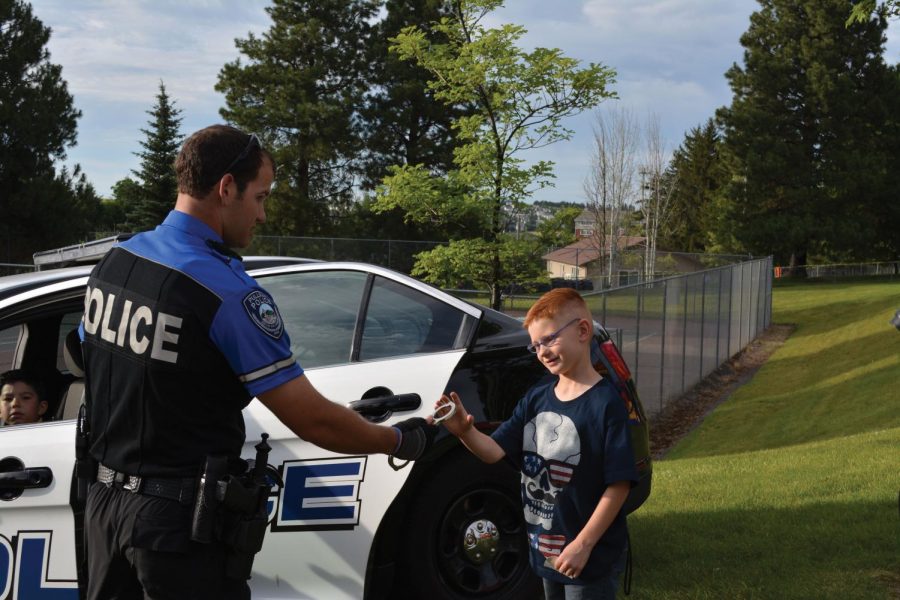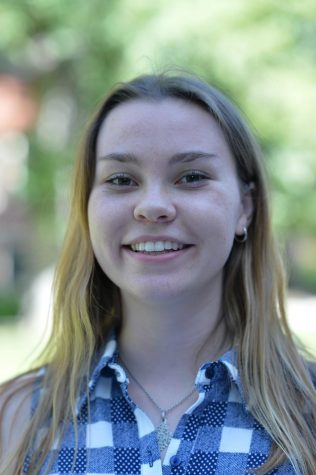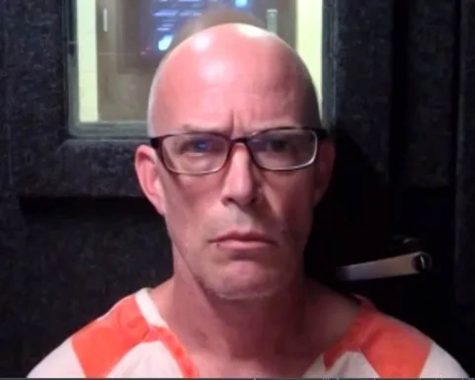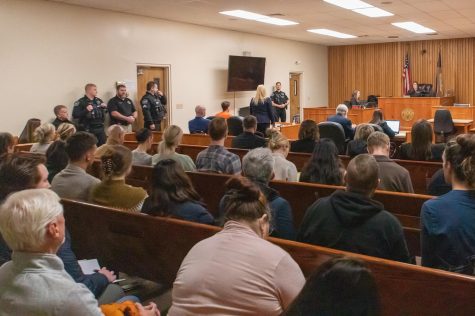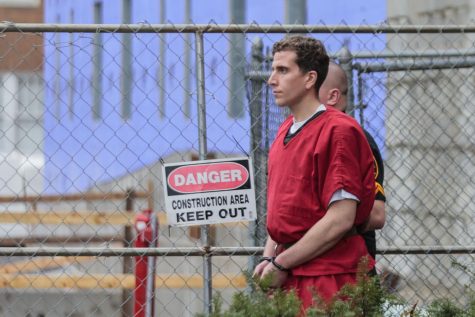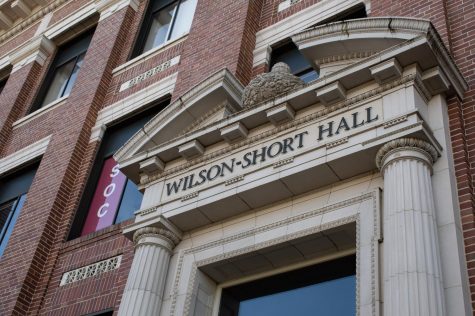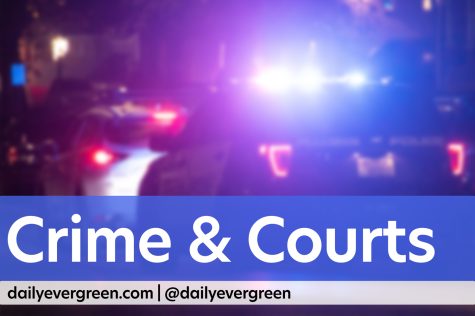Bicycle patrol offers police softer, stealthier approach
Weather, concentrated population allow for more biking officers
COURTESY OF PULLMAN POLICE DEPARTMENT
Officer Alex Gordon, seen here showing a child handcuffs at a community event, said doing bike patrols allows officers to more closely monitor situations than when they use a squad car.
June 21, 2018
As the weather gets warmer and students begin to flood into town, Pullman Police Department bicycle patrol officers will be covering the College Hill area more often.
Bicycles allow officers to maneuver through crowded and hidden places, but they also help law enforcement to connect with the community.
“On foot or on bike you’re a lot more approachable and able to communicate with people,” College Hill beat officer Alex Gordon said. “If you’re in a patrol car and stop your car in the middle of the road and get out, that’s more of a big deal.”
Pullman PD Cmdr. Chris Tennant said bicycle patrol opens officers up to conversations and helps build rapport between Pullman residents and police.
“The idea of bicycle patrol is community oriented,” he said. “It drops some barriers.”
While being on a bike makes officers approachable, it also allows them to be more covert, Gordon said.
“When you’re in a vehicle, you’re stuck on the street, there’s street lights, you’ve got lights on your car, you’re very noticeable and everyone knows what a police car looks like,” he said. “A bike is really quiet and you see things you wouldn’t normally see.”
On bikes, officers have access to more of their senses. Gordon said a police car’s running engine and radio might block important sounds.
“We’re looking out for crimes of violence, people getting into fights or domestic disputes,” Gordon said. “Being on bike helps because you can hear somebody arguing rather than just driving by and seeing them argue.”
Gordon and other bicycle officers are able to stop cars using visual and audio methods.
“We have red and blue flashing lights for the bikes and our flashlights, as well as whistles,” he said. “The trick is being fast enough to catch up to the car.”
Even though he may not have the help of a motor, he said drive-offs don’t happen often.
“I’ve had one person drive off,” he said. “But we were able to get another car to stop them.”
On College Hill, officers are also on the lookout for people needing medical assistance, Gordon said.
“We’re worried about people who maybe pass out somewhere or are getting sick somewhere in an alleyway or between houses,” he said. “So you can pick that up when you’re a little more mobile.”
Because bikes provide many benefits to officers, Pullman PD trains every officer in bicycle patrol through a long course that takes several days to complete.
“People think, ‘I learned how to ride a bike when I was eight years old,’ but riding a bike as a police officer is totally different,” Tennant said.
Officers must learn how to stop a car, interact with a crowd and go up and down stairs and curbs, he said.
Despite thorough training, the Pullman PD does not have a dedicated bike unit or full-time bicycle officer. This is due to bicycle patrol’s limitations and a lack of need.
In Pullman’s environment, bicycles can be a hassle. Tennant said Pullman’s climate makes bicycle patrol nearly impossible for half of the year, but speed is also an issue.
“When you’re trying to get to a fight from Stubblefield’s up to Merman and Terre View in Apartment land, that’s a big hill there.” Tennant said, “You’re going to get there all worn out. It just doesn’t make a lot of sense.”
To counter the issue of response time, bicycle patrol officers generally stay in one highly concentrated area like College Hill.
Although some officers prefer to cover normal traffic on bikes, this is only possible when there is enough coverage in vehicles, Gordon said.
Until later this summer when students crowd College Hill, officers will be on bicycles during events like Fourth of July at Sunnyside Park or the Lentil Festival in August.
With more officers, Pullman PD could potentially use bikes more often.
“In 2018, places are hurting for police officers, so there’s a great opportunity for people who want to be involved in law enforcement.” Gordon said.
Gordon said he loves his job, and bicycle patrol adds to the fun.
“I love catching bad guys,” he said. “It’s fulfilling to try to create a community where people can be safe and do the things they want to do, without having to deal with us or criminal activity.”

